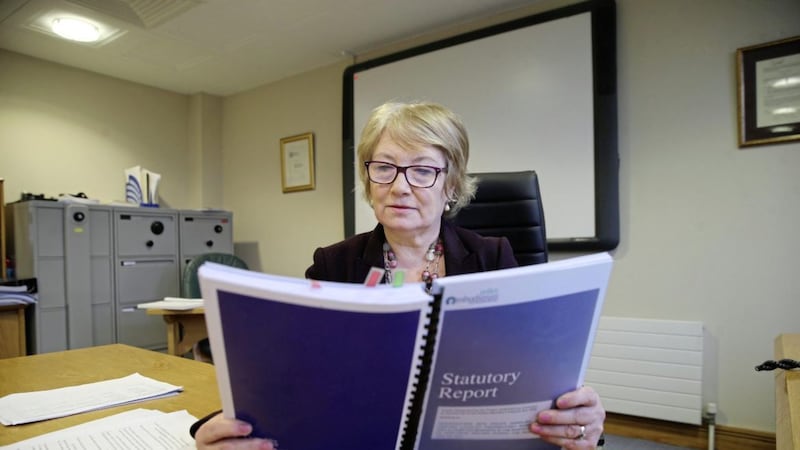Bad deeds unpunished and unexamined trouble the present, which has its own stresses.
More than two decades on from the agreement that at least some hoped would put the Troubles to bed the past sleeps twitchily, fitfully. In Glasnevin Cemetery the Necrology Wall, an ugly name and now a failed idea, has been abandoned as an all-inclusive memorial. People full of hate and obsessed with their own interpretation of republicanism kept taking pickaxes to the names of those who died in the violence of the Irish state’s birth. They hacked through the names of civilians, Irish Catholics shot as Royal Irish Constabulary, regular British soldiers, Black and Tans. The gold trim to make the wall less grim in appearance was first to go.
A big book has had a different life. Though Lost Lives chronicles in identical style republican and loyalist paramilitaries, soldiers and police and the poor bloody infantry of civilians, it sits on bookshelves without rousing angers. It does not seek to honour, except by even-handedness. Names carved in marble in Glasnevin meant heroes and enemies listed together in the nation’s holiest place which some, undeclared and faceless, can not abide.
A hundred years have not been long enough to build enough generosity or forgiveness. ‘Authority’ apparently lacks the will to face down the pick-axers. For fear of rousing worse? And in the north, where there is no self-professed independent state supported by an overwhelming majority, what chance was there ever that twenty years could build shared loyalty and dull hatred?
None, especially given the refusal by state forces to open files and admit guilt and the remains of secret armies to admit guilt and return the Disappeared. The past month’s official reports into security force collusion with loyalists have borne out terrifying, undermining suspicions.
A string of official reports has now also strengthened a republican attempt to diminish the IRA’s majority responsibility for Troubles deaths. In three years Police Ombudsman Marie Anderson has published three reports on more than 30 murders in Belfast and the north-west. She found patterns of failings and conduct that she summed up as ‘collusive behaviour’ by the RUC towards the UDA, in which they had a network of informants. The UDA was still legal until 1992.
Anderson’s list of ‘collusive behaviours’ began with perhaps the most sinister in a devastating catalogue; ‘Intelligence and surveillance failings which led to loyalist paramilitaries obtaining military grade weaponry in a 1987 arms importation.’
The response as before by retired RUC officers, some of whom went on to the PSNI, has been to run down the Office of the Ombudsman and rubbish reports that produced no prosecutions. Though the reports also chart refusal to keep records, destruction of records and evidence of crime, and refusal to cooperate with and be questioned by the ombudsman’s investigators.
Traditional republican insistence and northern Catholic fear that loyalist paramilitaries have always been British puppets now sits alongside investigations with an official imprint. Danny Morrison writes to the Irish Times of ‘collusion in the assassinations of more than one thousand nationalists.’
With few exceptions unionist politicians refuse to accept that police, like soldiers, should be held to a higher standard than paramilitaries, that this prevents allegiance to the state which protects such security forces. Yet the current British government plans to block any further investigation of the past.
Which will need to be a thorough-going move to block the next major report into collusion, by retired senior British policeman Jon Boutcher. This one unionists may welcome while republicans may well dread it. Boutcher has been investigating Stakeknife, British army agent and alleged ‘executioner’ of IRA volunteers he professed to have unmasked as double agents - like himself.
The dirty war is still denied by many of those who waged it; in attempted damage limitation, the rubbishing of investigations they obstruct. In the ceaseless attempt to rewrite the Troubles for the record and maybe for peace in their own heads.








